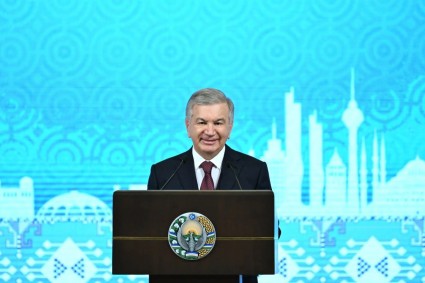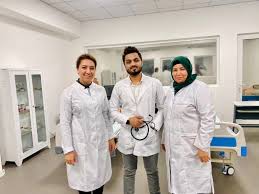On May 13, 2022, the State Committee for Ecology and Environmental Protection of the Republic of Uzbekistan jointly with the United Nations Development Programme held the fourth (final) national consultation in preparation for the international meeting ‘Stockholm+50: a healthy planet for the prosperity of all – our responsibility, our opportunity’.
The objective of the roundtable, which was held in a hybrid format, was to present at the international meeting Stockholm+50 the achievements and directions of state measures to ensure the conservation of nature, its resources, as well as the contribution to climate change mitigation.
The session was attended by Zhusipbek Kazbekov, the Deputy Chairman of the State Committee on Ecology and Environment of the Republic of Uzbekistan, Matilda Dimovska, UNDP Resident Representative in Uzbekistan, Aidai Kurmanova, Head of UN Environment Programme (UNEP) Sub-Regional Office for Central Asia, representatives of various national ministries and departments, as well as representatives of civil society, academia and community groups.
The round table discussed such topics as ‘The National Biodiversity Strategy and Action Plan and the post-2020 biodiversity framework’, ‘Sustainable management and financing of biodiversity and ecosystems, preparation for the implementation of the post-2020 Global Biodiversity Agenda’, ‘Integrity and diversity of nature in the use of natural resources.’
In his welcoming speech, Mr. Zhusipbek Kazbekov noted ‘The New Development Strategy of Uzbekistan is the most environmentally friendly strategy in our history, since the principles of a green economy and environmental issues are embedded in all sectors of the development. Also, Uzbekistan has adopted a number of strategic documents defining country policy: the Concept of Environmental Protection, the National Biodiversity Strategy, the Solid Waste Management Strategy, the Concept of Transition to a Green Economy, and others. The groundwork has been laid and we have a lot of work to do with our international partners.’
Ms. Matilda Dimovska, in her speech noted ‘Ensuring that the policies are backed up with sustainable financing including international, domestic investments or new financing instruments is critical for sustainability of biodiversity initiatives. Only integrated approach can bring sustainable results - when greening is combined with poverty reduction and economic growth aspects. UNDP is pleased for the opportunity to work with State Ecology Committee and the Ministry of Finance on introducing new financing biodiversity instruments in Uzbekistan, among many other areas of our cooperation.’
During the national consultation, local and international experts, specialists and activists presented their proposals and comments on environmental issues of Uzbekistan, and discussed further actions. These discussions will be presented by the delegation of Uzbekistan at the international meeting Stockholm + 50 to be held in June.















